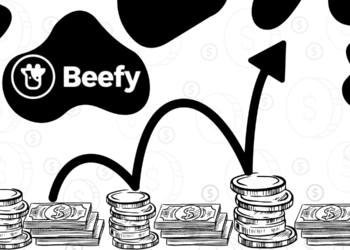As the popularity of cryptocurrencies continues to rise, so do the risks associated with holding digital assets. Cryptocurrency wallets are prime targets for hackers. Here are five ways to recognize that your cryptocurrency wallet may have been compromised:
- Unexplained Balance Changes: One of the most obvious signs of a compromised wallet is unexpected changes in your cryptocurrency balance. If you notice unauthorized withdrawals or transfers from your wallet, it’s a clear indication that someone else may have gained access. Regularly monitor your wallet’s transaction history for any suspicious activity.
- Unknown Addresses in Transaction History: Check your wallet’s transaction history for unfamiliar recipient addresses. Hackers often transfer stolen funds to multiple addresses to obfuscate their trail. If you see addresses you don’t recognize, investigate further.
- Difficulty Logging In: If you suddenly find it challenging to access your wallet or are repeatedly prompted for verification codes, your wallet may be compromised. Hackers could have changed your login credentials or enabled two-factor authentication without your consent.
- Unauthorized API Access: Some cryptocurrency wallets offer API access for external services. If you’ve enabled API access and notice unusual activity, such as unauthorized trading or transfers, your wallet may be compromised. Disable API access immediately and change your API keys.
- Phishing Attempts: Be cautious of phishing attempts via email, social media, or suspicious websites. Hackers often try to trick users into revealing their wallet credentials. Verify the authenticity of communication and links before providing any information.
How To Safeguard Your Cryptocurrency Wallet
- Use hardware wallets: Hardware wallets provide an extra layer of security by keeping your private keys offline.
- Enable strong authentication: Use multi-factor authentication (2FA or 2SV) to add an extra barrier against unauthorized access.
- Regularly update your software: Ensure your wallet software and any related apps or plugins are up-to-date to patch potential vulnerabilities.
- Keep private keys secure: Never share your private keys or recovery phrases, and store them offline in a safe place.
- Use reputable wallets: Stick to well-known, trusted wallet providers and exchanges.
If you suspect your cryptocurrency wallet has been compromised, act swiftly. Isolate the wallet from the internet, change your login credentials, and contact the wallet provider or exchange for assistance. Early detection and response are crucial to minimizing potential losses in the world of cryptocurrencies, where transactions are irreversible.
Disclosure: This is not trading or investment advice. Always do your research before buying any cryptocurrency or investing in any projects.
Follow us on Twitter @thevrsoldier to stay updated with the latest Metaverse, NFT, A.I., Cybersecurity, Supercomputer, and Cryptocurrency news!
Image Source: abidal/123RF // Image Effects by Colorcinch












